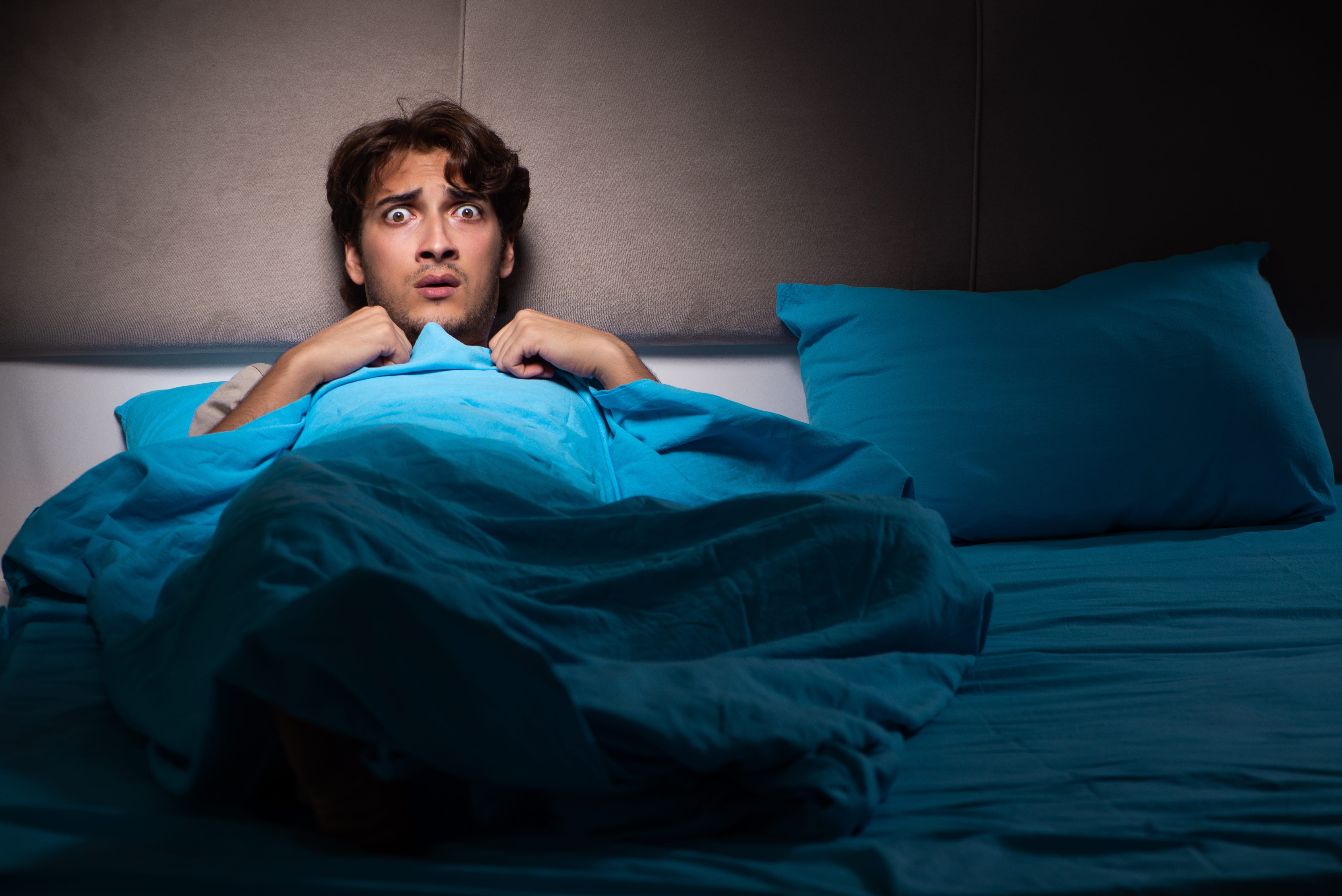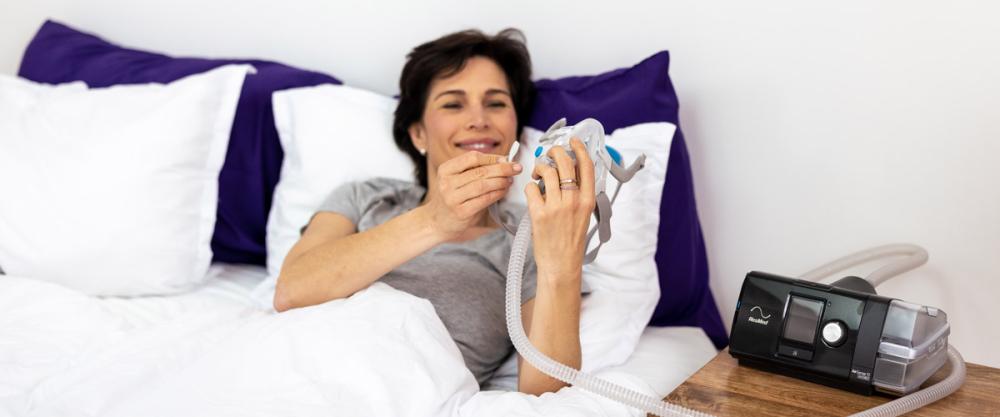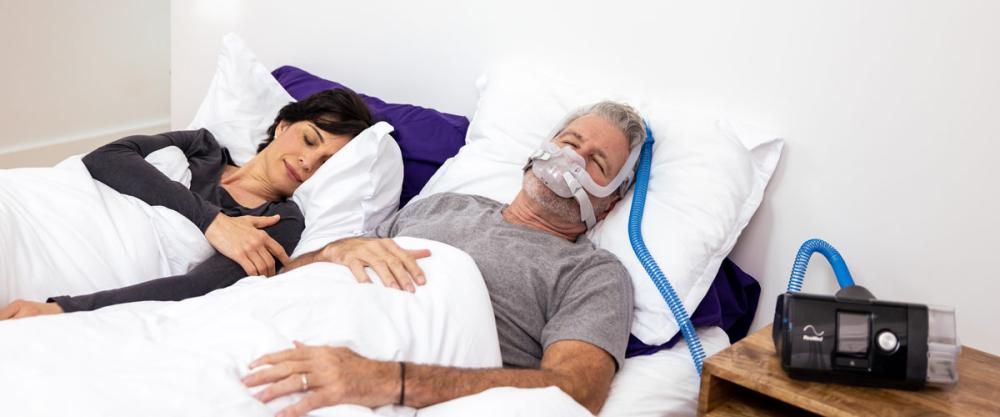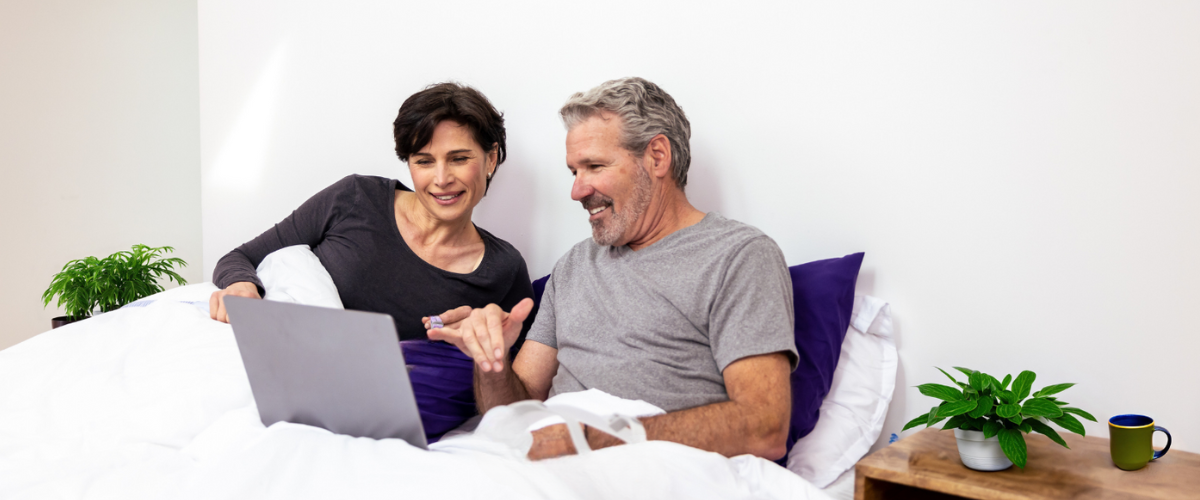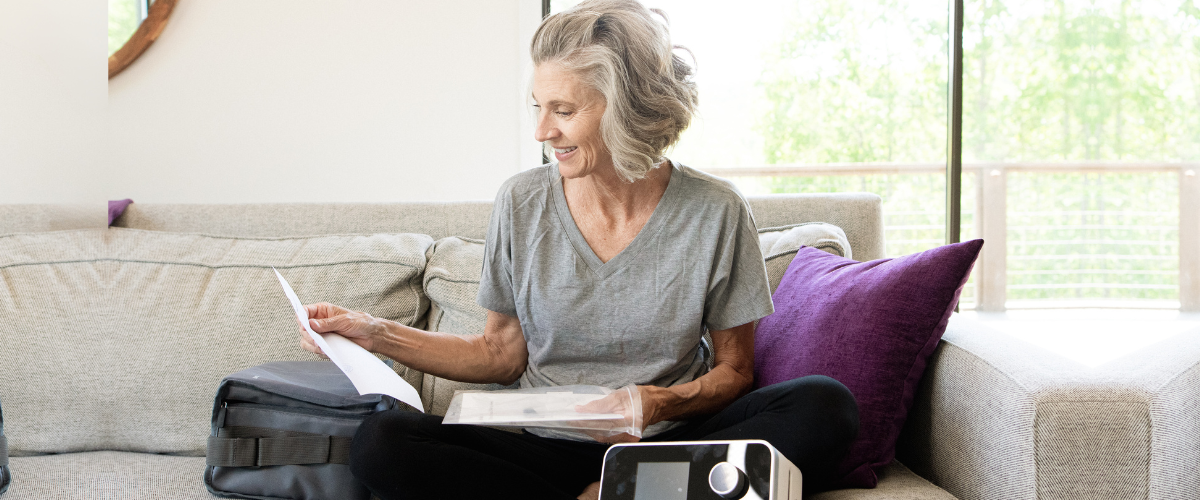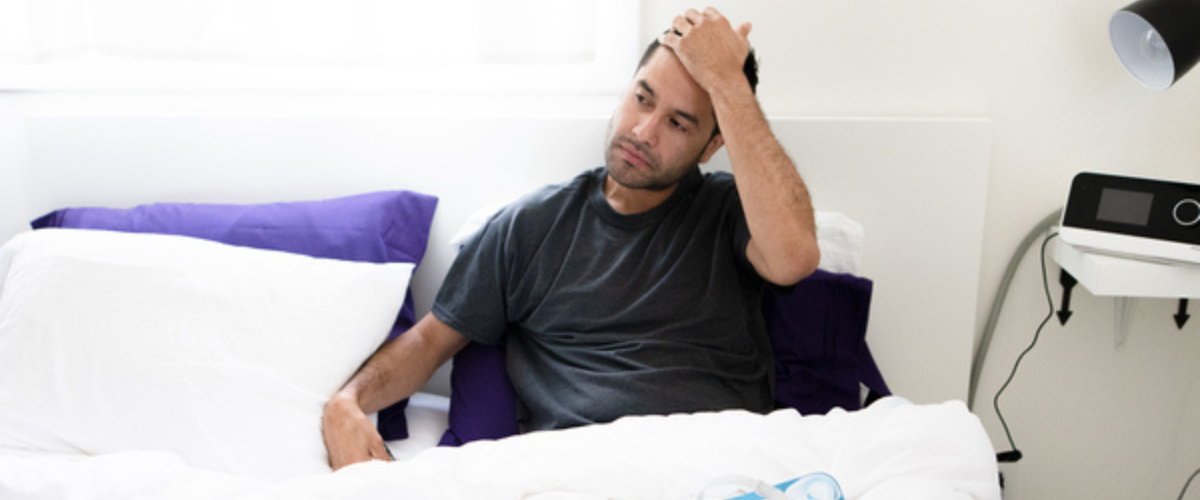Do your dreams make you scream? That might be due to untreated sleep apnea. While other parasomnias (sleep-disrupting disorders) can also cause nightmares, when it comes to sleep apnea, it's the lack of oxygen that contributes to bad dreams.
Sleep Apnea And Nightmares
Some sleep apnea patients have reported having nightmares where the feel like they’re suffocating or drowning. This makes sense when obstructive sleep apnea (OSA) is present. OSA causes the fatty tissues around the throat to collapse and block the airways during the night. Studies described that sleep apnea could trigger nightmares such as feeling suffocated, or dreams with emotional, violent, or hostile content.
While dreams occur during any phase of sleep, they are most vivid during REM sleep. This is when the body relaxes and becomes very still as the brain becomes more active. Because muscles relax, it’s easier for muscles around the throat to collapse, blocking your oxygen.
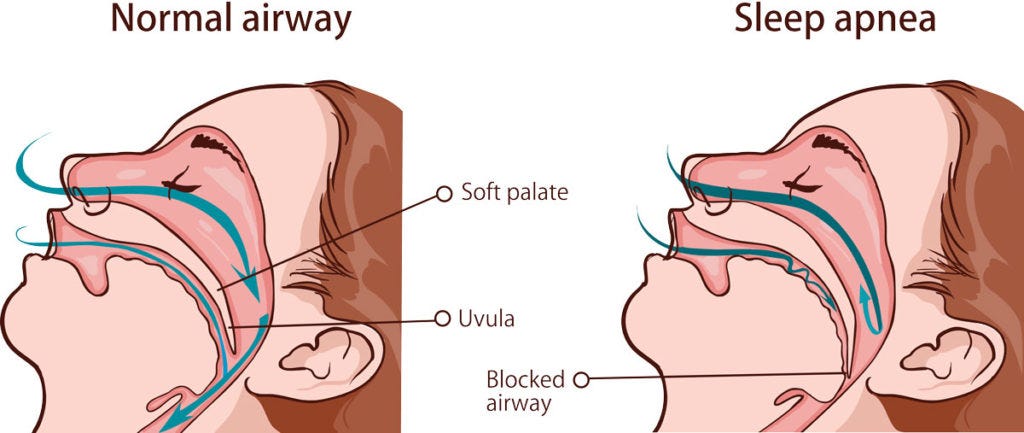
As your sleep is disrupted and your body works to restore airflow happy dreams may turn into nightmares. This combined with the fact that sleep disruptions make it easier to recall dreams, specifically the vivid bad ones that you have during apneas or the periods that occur when your breathing stops during rest. But sleep apnea patients can get back to peaceful dreams with the help of their CPAP.
Preventing Nightmares With CPAP
A CPAP or continuous positive airway pressure device works by delivering a constant stream of air to keep your airways open. This way your sleep doesn't become disrupted, lowering the chance of frequently waking up due to nightmares.
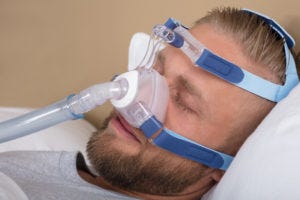
A study that evaluated PTSD and nightmares among veterans found that the participants who had bad dreams on a more frequent basis also had obstructive sleep apnea. When they started to use their CPAP machines the amoung of nightmares the veterans experienced was greatly reduced. Researchers were even able to predict would have less frequent nightmares based on CPAP compliance.
Another study took a look at the Apnea-Hypopnea Index (AHI) among patients, to suggest that severe OSA decreases the occurrence of nightmares. AHI is used to measure the severity of sleep apnea in patients by looking at how many disruptions a patient experiences per hour and how long each episode lasts.
- An AHI of 5 to 15 is mild
- An AHI of 15 to 30 is moderate
- And An AHE greater than 30 is severe.
Patients with a higher AHI reported lower rates of nightmares and this could be because cognitive memory function is reduced with greater sleep disruptions. These patients had less REM sleep and had more difficulty remembering all of their dreams, not just nightmares.
I Have CPAP And Nightmares
If you have a CPAP and still experience frequent nightmares, do not give up on your sleep apnea treatment. Your mood, memory, and physical health depend on getting proper rest during the night. There are simple steps you can take to get used to your CPAP and put an end to those bad dreams.
Prevent feeling claustrophobic: Using a CPAP mask takes some getting used to. They can make some people feel claustrophobic. If that’s the case try wearing your mask more often to get used to it. Wear it a few hours before bed, while watching TV, and during naps.
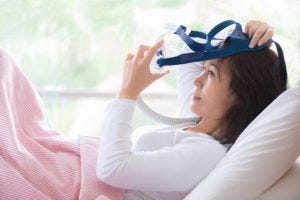
You could also try switching from a full face CPAP mask to a nasal mask or nasal pillow mask that makes less skin contact.
Stop Leaks: If your mask or CPAP cushions break down (as they do overtime) and you fail to replace them according to your resupply schedule they could leak. If air is leaking from your mask then it won’t be directed to your airways and your sleep could become disrupted again.
Also, if your mask is the wrong size it could leak. Be sure to work with our sleep experts to find the perfect mask to fit your individual needs.
Adjust the Airflow Pressure: Contact your medical provider if the pressure is too high or too low, and if it is affecting sleep and compliance.
Up your cleaning game: Over time your mask, CPAP tubing, and more can collect dust, allergens, bacteria, molds, and more that increase the risk of getting sick. This could literally make your CPAP a nightmare! Keep those germs away with a regular cleaning schedule or the Lumin CPAP cleaner.

